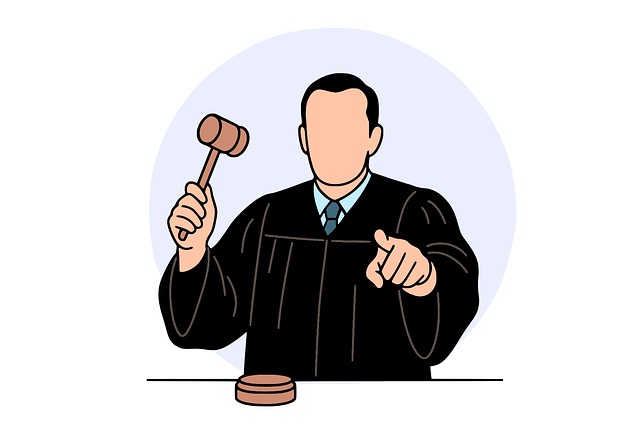
Category: Littleton Colorado Personal Injury Lawyer
Littleton Colorado Personal Injury Lawyer: A Comprehensive Analysis
Introduction
In the complex legal landscape, ‘Littleton Colorado Personal Injury Lawyer’ emerges as a specialized field, offering critical support to individuals who have suffered harm due to another’s negligence or intentional acts. This article delves into the multifaceted world of personal injury law in Littleton, Colorado, exploring its definition, global and local impacts, economic significance, technological integrations, regulatory framework, challenges, successful implementations, and future prospects. By examining these aspects, we aim to provide an insightful guide for both legal professionals and individuals navigating personal injury claims.
Understanding Littleton Colorado Personal Injury Lawyer
Definition
A Littleton Colorado Personal Injury Lawyer is a legal professional specializing in representing clients who have incurred physical, emotional, or financial harm due to another party’s negligence or intentional misconduct. This encompasses a wide range of cases, from motor vehicle accidents and premises liability to medical malpractice and product liability. The primary goal is to ensure that victims receive fair compensation for their suffering and losses.
Core Components
- Negligence: Establishing a duty of care, breach of that duty, causation, and damages.
- Intentional Acts: Assessing intentional torts like assault, battery, or false imprisonment, where punitive damages may be pursued.
- Compensation: Seeking economic and non-economic damages, including medical expenses, lost wages, pain and suffering, and emotional distress.
- Litigation: Navigating court proceedings, pre-trial negotiations, trials, and appeals to secure favorable outcomes for clients.
Historical Context
The concept of personal injury law has evolved over centuries, reflecting societal changes and the development of legal systems. In early common law jurisdictions, remedies for tortious injuries were largely limited to compensatory damages. Over time, as societies became more complex and industrialized, the scope of personal injury law expanded to address emerging issues like product liability and professional negligence. Colorado’s personal injury laws have been shaped by both state-specific legislation and federal regulations, ensuring a balanced approach to protecting individuals’ rights.
Significance and Landscape Fit
Personal injury law plays a pivotal role in holding responsible parties accountable for their actions, deterring negligent or reckless behavior, and providing victims with a means of recovery. In Littleton, Colorado, as in many urban areas, personal injury cases are common due to the bustling metropolis’s high traffic volume, diverse economic activities, and varied social interactions. The local legal community is well-equipped to handle these matters, drawing on expertise in state and federal laws applicable to personal injuries.
Global Impact and Trends
International Influence
The concept of personal injury law has spread globally, with many countries adopting principles rooted in English common law or civil law systems. However, each jurisdiction adapts these principles to suit its unique cultural, social, and economic context. For instance, in Europe, the Rome I Regulation harmonizes the law applicable to non-contractual obligations, facilitating cross-border personal injury claims. In Asia, countries like Japan and South Korea have seen significant developments in product liability and medical malpractice litigation, influenced by global trends and local activism.
Key Trends Shaping Trajectories
- Technological Advancements: The digital age has transformed legal practices, enabling efficient document management, online case research, and remote client consultations.
- Growing Awareness of Victim Rights: Increasing public awareness and advocacy have led to stricter liability rules and expanded rights for accident victims.
- Specialization and Expertise: Personal injury law firms are increasingly specializing in specific areas, such as medical malpractice or trucking accidents, to provide more effective representation.
- Cross-Border Claims: With globalized economies, international travel, and diverse business operations, cross-border personal injury claims are becoming more common, requiring sophisticated legal strategies.
Regional Variations
Personal injury law varies significantly across regions due to cultural, economic, and political factors:
| Region | Notable Features |
|—|—|
| North America (USA & Canada) | Stricter product liability laws, stringent safety regulations for vehicles and consumer products, and a strong emphasis on victim compensation. |
| Europe | Diverse legal systems with common law and civil law traditions, harmonized rules for cross-border claims through regulations like Rome I and Rome II. |
| Asia (East & Southeast) | Rapidly growing economies with emerging personal injury litigation, influenced by Western trends but adapting to local cultural norms and legal traditions. |
| Australia/New Zealand | Similar to common law countries, with a focus on negligence-based claims and robust consumer protection laws. |
Economic Considerations
Market Dynamics
The personal injury legal market is dynamic and highly competitive, driven by factors like case complexity, local legal standards, and client expectations. In Littleton, Colorado, as in many urban centers, the market is characterized by:
- Specialized Firms: Numerous law firms cater exclusively to personal injury cases, offering specialized knowledge and resources.
- Multifaceted Services: From initial consultations to trials and appeals, these firms provide comprehensive legal support tailored to clients’ needs.
- Client Demand: High demand for personal injury services due to the frequent occurrence of accidents and the city’s fast-paced lifestyle.
Financial Implications
Personal injury cases have significant economic implications:
- Client Compensation: Successful claims can result in substantial financial compensation for victims, including medical expenses, lost wages, property damage, and pain and suffering.
- Insurance Impact: Insurance companies bear a considerable financial burden, especially for high-profile or complex cases, influencing their pricing strategies and risk assessments.
- Economic Growth: The legal services sector contributes to economic growth through the generation of revenue, job creation, and support for related industries like healthcare and auto repair.
Technological Integrations
Digital Transformation
Technology has revolutionized personal injury law practices:
- Case Management Software: Legal professionals use sophisticated software to organize client files, manage deadlines, and track case progress efficiently.
- Online Research Tools: Rapid access to legal databases enables attorneys to conduct thorough research, ensuring well-informed decision-making.
- Client Communication: Secure online platforms facilitate client communication, allowing for remote consultations and document sharing.
- Expert Testimony: Video depositions and digital expert reports have become common, reducing the need for physical appearances in court.
Emerging Trends
- Artificial Intelligence (AI): AI-powered tools assist in case analysis, contract review, and predictive analytics, enhancing efficiency and accuracy.
- Blockchain: Blockchain technology offers secure, transparent record-keeping for medical records, insurance claims, and legal documents.
- Virtual Reality (VR): VR is used for accident reconstruction, providing immersive experiences that aid in understanding complex cases.
- Mobile Apps: Client-friendly apps enable easy access to case updates, court notices, and legal resources.
Regulatory Framework
Colorado State Laws
Colorado’s personal injury laws are governed by the state constitution and various statutes:
- Colorado Revised Statutes (CRS): The CRS provides a comprehensive framework for tort law, covering negligence, strict liability, and intentional torts.
- Legal Malpractice: The CRS outlines specific requirements for bringing legal malpractice claims, including statutes of limitations and proof standards.
- Product Liability: Colorado follows the Restatement (Second) of Torts for product liability, holding manufacturers, distributors, and sellers liable for defective products.
Federal Regulations
Federal laws also play a significant role in personal injury cases, particularly in areas like:
- Motor Vehicle Safety: The National Traffic and Motor Vehicle Safety Act mandates safety standards for vehicles, influencing product liability cases.
- Medicare Secondary Payor Act (MSPA): This law addresses the complex issue of Medicare reimbursement in personal injury settlements.
- Americans with Disabilities Act (ADA): Ensures equal access to goods and services, impacting premises liability cases involving discrimination against individuals with disabilities.
Challenges in Personal Injury Law
Legal Complexities
Personal injury law presents numerous challenges due to its complexity:
- Case Preparation: Building a strong case requires extensive investigation, expert opinions, and adherence to strict legal standards.
- Statutes of Limitations: Time constraints for filing claims vary by jurisdiction and type of case, requiring prompt action.
- Proof Standards: Establishing liability and damages often involves complex legal arguments and persuasive evidence presentation.
Ethical Considerations
Lawyers must navigate ethical dilemmas:
- Confidentiality: Maintaining client privacy and confidentiality is essential, especially when dealing with sensitive medical information.
- Conflict of Interest: Lawyers must avoid conflicts between clients or matters, ensuring fair representation for all involved.
- Client Expectations: Managing client expectations regarding case outcomes and legal fees is crucial for ethical practice.
Adversarial Environment
Personal injury litigation can be highly adversarial, with insurance companies and defendants employing aggressive strategies to minimize liability:
- Negotiation Tactics: Insurance adjusters may use tactics like early offers or lowball settlements, requiring skilled negotiation from attorneys.
- Complex Defense Strategies: Defendants often employ intricate legal arguments and expert testimonies to dispute liability and damages.
- Courtroom Battles: Trials can be demanding, requiring attorneys to present compelling evidence and persuasive closing arguments.
Successful Implementation Stories
Medical Malpractice Case
A local law firm in Littleton successfully represented a client who suffered permanent paralysis due to a doctor’s negligence during routine surgery. Through meticulous case preparation, they gathered expert medical opinions, demonstrated negligence, and secured a substantial settlement, ensuring the client received comprehensive care and financial support for life.
Product Liability Victory
A young woman sued a major manufacturer after purchasing a defective smartphone that caught fire while in use. The Littleton law firm she engaged presented strong evidence of product liability, including similar incidents reported worldwide. They settled for a significant sum, demonstrating the firm’s ability to hold powerful corporations accountable.
Future Prospects
Emerging Areas of Focus
- Mental Health and Trauma: As awareness grows about psychological injuries resulting from accidents, this area is gaining legal attention.
- Autonomous Vehicles: The rise of self-driving cars introduces unique liability issues, challenging traditional personal injury law concepts.
- Cybersecurity Risks: Personal data breaches and cyberattacks are becoming more prevalent, with potential legal implications for negligence or intentional harm.
Predictions:
- Alternative Dispute Resolution (ADR): ADR methods like mediation and arbitration may become more common, offering efficient and cost-effective alternatives to traditional litigation.
- Technology Integration: Advanced technologies will continue to shape the legal profession, enhancing case management, research, and client communication.
- Global Legal Standards: International collaboration on legal standards may impact personal injury law, especially in areas with cross-border jurisdiction.
In conclusion, personal injury law is a dynamic field, constantly evolving to address new challenges and emerging technologies while striving to provide justice for victims and hold responsible parties accountable.

Save Thousands with Littleton’s Top Bankruptcy Lawyer: Get New Hope Today!
Are you burdened by overwhelming debts after an accident in Littleton, Colorado? As a trusted Little…….







